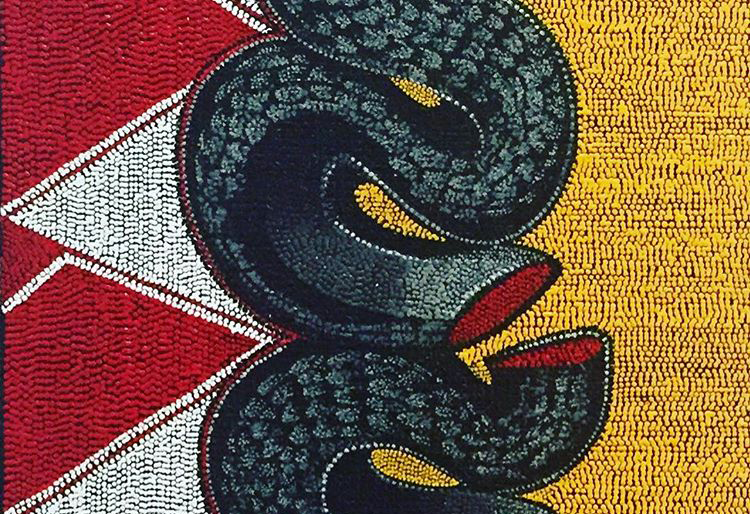Learning to Teach Philosophy You Don’t Already Know
You may occasionally think about a topic you think you should add to a course you teach, but put off doing so because you don’t believe you know enough about it to teach it well.

[Starr Hardridge, “Black Snake” (detail)]
That last kind of obstacle is the focus of the NEWLAMP series.
NEWLAMP is the Northeast Workshop to Learn About Multicultural Philosophy. Initiated in 2022, it consists in week-long residential workshops that are “designed to give philosophy teachers the tools to approach, and successfully integrate” philosophy from traditions and regions underrepresented in mainstream U.S. philosophy curricula.
Each summer’s workshop has had a different focus. This year, the topic is “contemporary issues in Native American, Indigenous and Land-Based social and political philosophy. The curriculum will center on 5 key concepts in Indigenous resistance work: Sovereignty, Land, Decolonization, Indigenous Feminisms, and Cultural Reclamation.” You can learn more about it here.
NEWLAMP is being put on this summer as an NEH Institute for Higher Education Faculty at Northeastern University, and is being coordinated by Candice Delmas (Northeastern).
Up to 20 faculty will be accepted into the program. Applications are due March 5th.


This looks like a great opportunity.
In my many years teaching general education philosophy and humanities courses, I found that teaching philosophy I didn’t know was an important way of modeling the skills and intellectual virtues I was trying to teach my students. How could I insist that they must step outside their comfort zone and use the tools I was giving them to approach challenging new texts and ideas if I wasn’t willing to do the same?
So I was always explicit and open with my students when I was doing this, and I encouraged them not to mistake me (or themselves after the course) with a genuine expert in those new works or traditions I incorporated into the class. I did not find this undermined my authority with the students; to the contrary it at least demonstrated my sincerity.